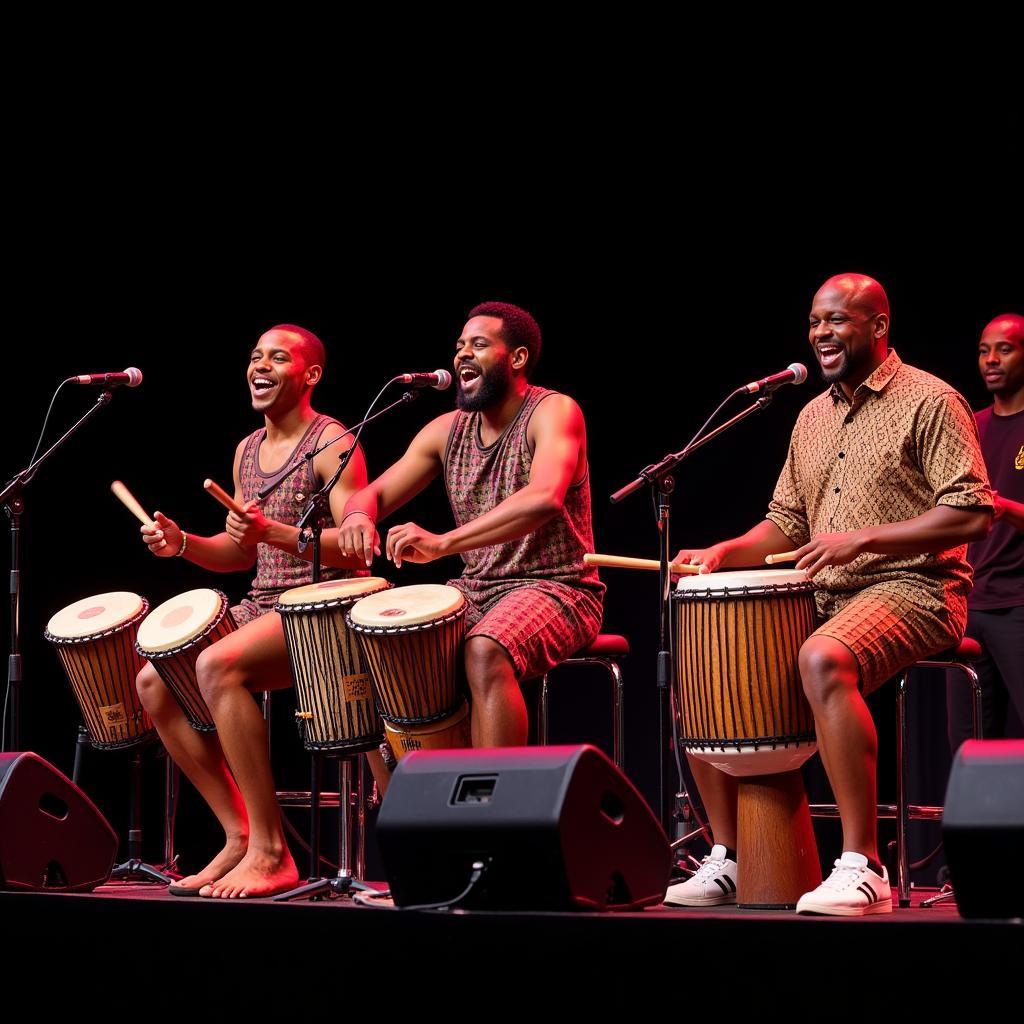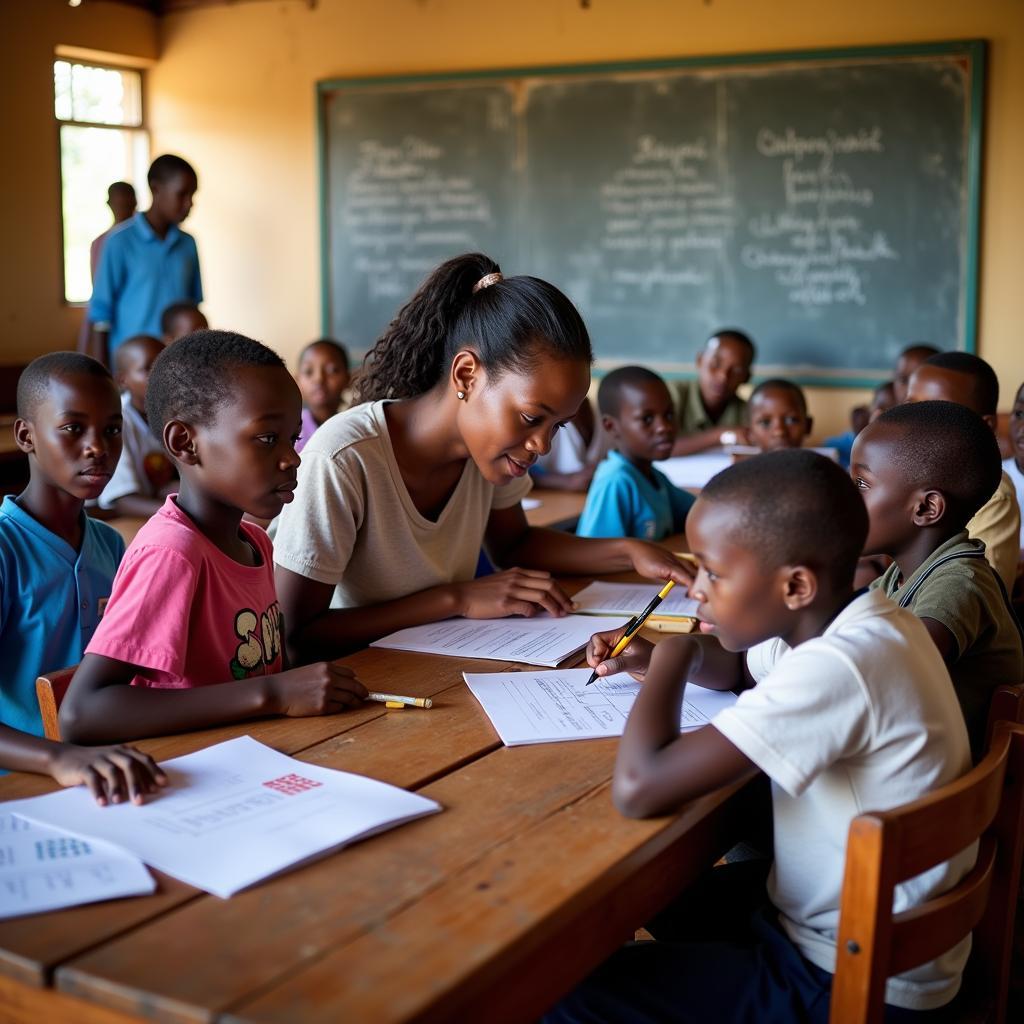African Baby Naming Ceremonies: A Celebration of Life and Lineage
African baby naming ceremonies are a rich tapestry of tradition, symbolism, and communal joy. Far from a simple event to give a child a name, these ceremonies are deeply rooted in cultural beliefs and signify the arrival of a new member into the community and their ancestral lineage.
The Significance of Names in African Culture
In many African cultures, names are not merely labels, but powerful affirmations of a child’s destiny, personality, or circumstances surrounding their birth. Names often reflect the hopes, dreams, and aspirations parents have for their child’s future. They can honor ancestors, commemorate historical events, or even express the time of day or week a child was born.
For example, a child named “Akintola” in the Yoruba culture, meaning “wealth is valor,” reflects the parents’ hope that their child will grow to be both prosperous and courageous. This intrinsic link between a name and its meaning imbues the African Baby Naming Ceremony with profound significance.
Rituals and Traditions: A Diverse Tapestry
While the specifics of African baby naming ceremonies vary greatly across the continent’s diverse cultures, certain common threads bind these traditions together.
Welcoming the Child into the Community
Community plays a pivotal role in these ceremonies. Elders, relatives, and friends gather to celebrate the new life and offer blessings and gifts to the child. This collective welcome signifies the child’s integration into the fabric of the community.
Symbolic Rituals
Symbolic rituals are often integral to African baby naming ceremonies. In some cultures, the baby’s head is shaved to symbolize new beginnings. In others, the infant might be held up to the sky or the earth, connecting them to the natural world and their ancestors. Food and drink are shared, signifying unity and prosperity.
The Role of the Elders
Elders often play a crucial role in choosing or bestowing the name. They draw upon their wisdom and knowledge of family history and tradition to select a name that resonates with the child’s lineage and future potential.
“The selection of a name is a deeply spiritual practice,” explains Adeola Oni, a Yoruba cultural historian. “It requires careful consideration and consultation with elders to ensure the chosen name aligns with the child’s ancestral energy and life path.”
African Baby Naming Ceremonies in the Modern Age
While rooted in ancient traditions, African baby naming ceremonies continue to evolve in the face of modernization and globalization. Parents in the diaspora adapt these ceremonies to maintain their cultural heritage while navigating new cultural landscapes.
The core elements of community, symbolism, and the profound meaning imbued in names remain central. This beautiful blend of tradition and modernity ensures that African baby naming ceremonies continue to be vibrant celebrations of life, lineage, and cultural identity.
FAQs
When does an African baby naming ceremony typically take place?
While traditions vary, many African cultures hold the naming ceremony within the first week or month after the baby’s birth.
Who usually chooses the baby’s name in an African culture?
The parents, grandparents, or community elders often play a significant role in choosing the baby’s name.
Are gifts given at an African baby naming ceremony?
Yes, guests often bring gifts for the baby and sometimes for the parents as well.
Do you need help planning an African baby naming ceremony?
Contact us! We are here to help you create a meaningful and memorable celebration. Call us at +255768904061, email us at kaka.mag@gmail.com, or visit our office in Mbarali DC Mawindi, Kangaga, Tanzania. Our customer care team is available 24/7.
You can also find more information on our website:
- Explore a diverse range of African kid names.
- Discover beautiful African American girl names.
- Find helpful resources for your African baby newborn.
- Explore African girl names that start with s.
- Browse our comprehensive list of African American names A-Z.


